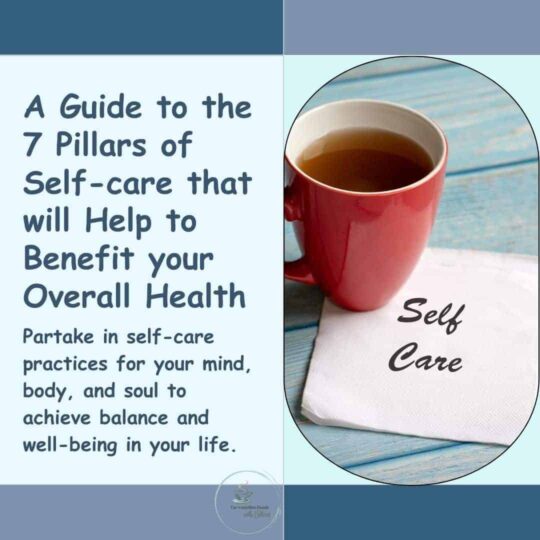Our world has become so fast-paced with all the demands of our daily lives that it has grown into our main focus and we often overlook caring for ourselves. Please realize that your self-care is not just a luxury reserved for Spa days, it’s a necessity and a priority for maintaining your overall well-being and becoming the best version of you.
It’s so easy to neglect your own needs with the hustle and bustle of everyday life. Your daily obligations may include caring for your family, the demands of your work and so many other obligations that consume your day that you tend to ignore to give yourself the necessity of self-care.
The 7 Pillars of Self-Care
Self-care involves many aspects of your daily life, each with its own criteria for achieving balance and fulfillment on a regular basis.
Let’s begin with the definition of Self-care (noun):
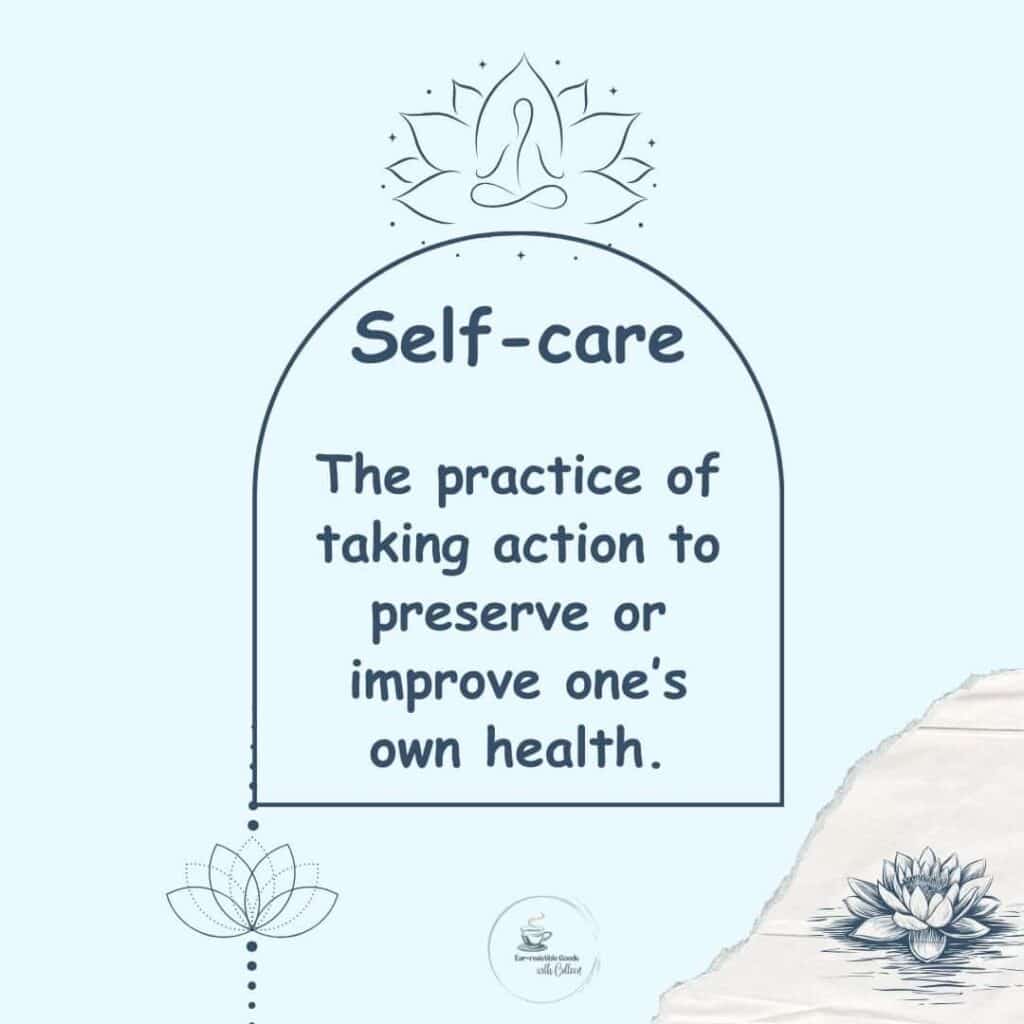
- “The practice of taking action to preserve or improve one’s own health“.
It’s a small sentence yet very powerful and can have a huge impact on your life.
Firstly, I can’t stress enough that self-care is essential and entails a wide variety of practices and activities to nurture different aspects of your being. There are 7 pillars of self-care:
- Emotional
- Physical
- Mental
- Spiritual
- Social
- Professional
- Practical
We will explore each pillar, discussing what self-care involves, why it’s essential for you and how it differs for each of us.
Emotional Self-Care is one of the 7 Pillars of Self-Care
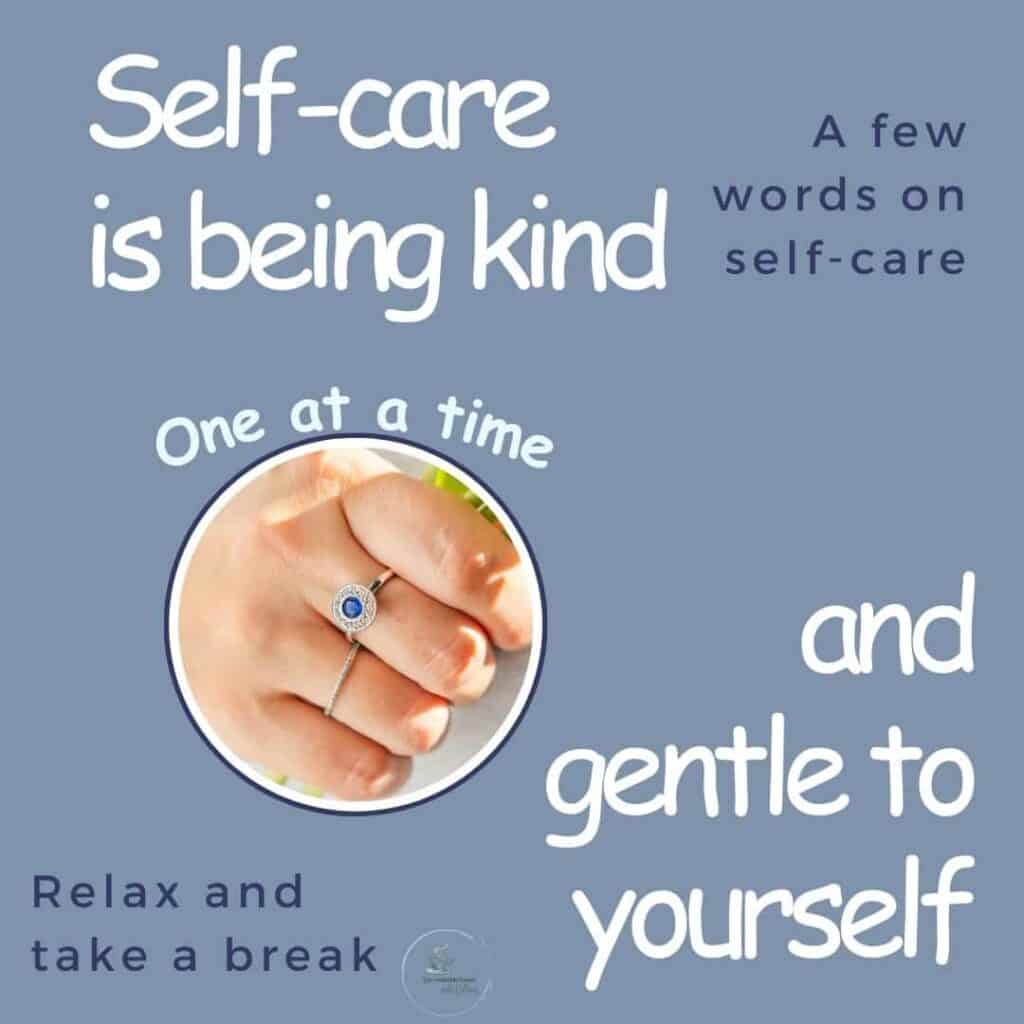
Emotional self-care involves recognizing, understanding, and nurturing your emotions in a healthy manner. It includes practices and activities such as expressing your feelings, practicing mindfulness that promotes your self-awareness and overall well-being. This can include:
- Self-Compassion – Treating yourself with kindness and understanding, especially during times of difficulty or being your own worst critic (I’m guilty!). There are many times that you may have to give yourself grace as you may have had an unexpected and uncontrollable circumstance occur.
- Emotional Expression – Finding healthy outlets for expressing yourself and processing your emotions through activities such as journaling, puzzles, art, using affirmations, practicing gratitude, empowering jewelry or talking with a confidante or therapist to give you balance.
- Setting Boundaries – (this one is hard!) Establishing and maintaining boundaries in all your relationships to protect your emotional well-being.
- Pleasure and Joy – Engage in activities that bring you joy such as spending time with loved ones, hobbies, or simply taking a moment to appreciate your surroundings.
We all have different emotional needs and our coping strategies are all unique so emotional self-care looks different for each of us.
The most important thing for your emotional self-care is to manage and balance your life so you improve your overall quality of life with ease and grace.
Physical Self-Care is one of the 7 Pillars of Self-Care
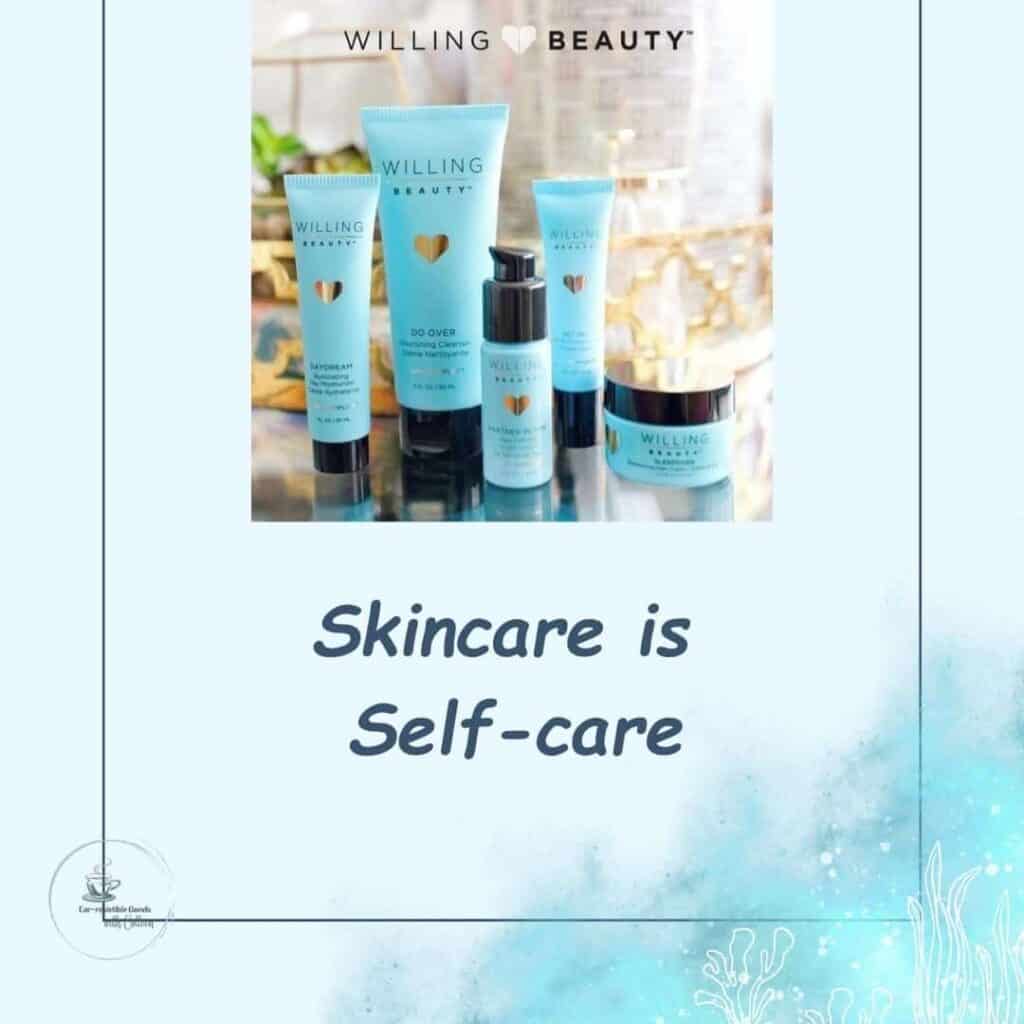
Physical self-care involves nurturing and taking care of your body by attending to your physical health needs. You need to support your overall physical well-being to maintain your long-term health. This can include:
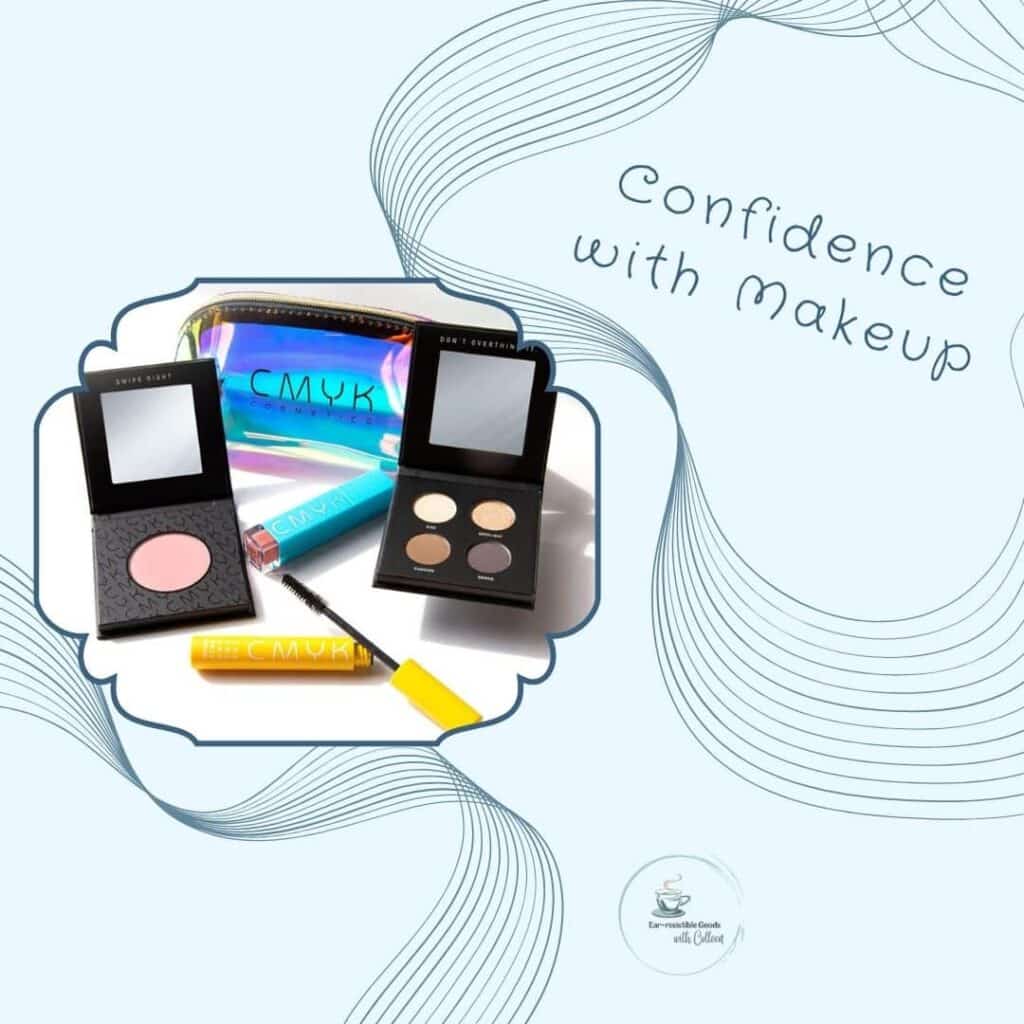
- Nutrition – You need to fuel your body with nourishing foods that provide the essential nutrients you need for maximum energy.
- Exercise – Engaging in regular physical activity to improve your health, strength and flexibility.
- Rest and Sleep – Prioritizing rest and quality sleep supports your skin restoration, physical recovery, cognitive function and immune system.
- Hygiene – Personal hygiene habits, such as a bubble bath or showering, dental care, massage, grooming which would include skincare and makeup are all important practices for your overall health and well-being.
Physical self-care is on a per person basis as each of our bodies are unique and have different needs. It’s essential to listen to what your body says, honor its limitations and make the choices that supports your physical health.
Mental Self-Care is one of the 7 Pillars of Self-Care
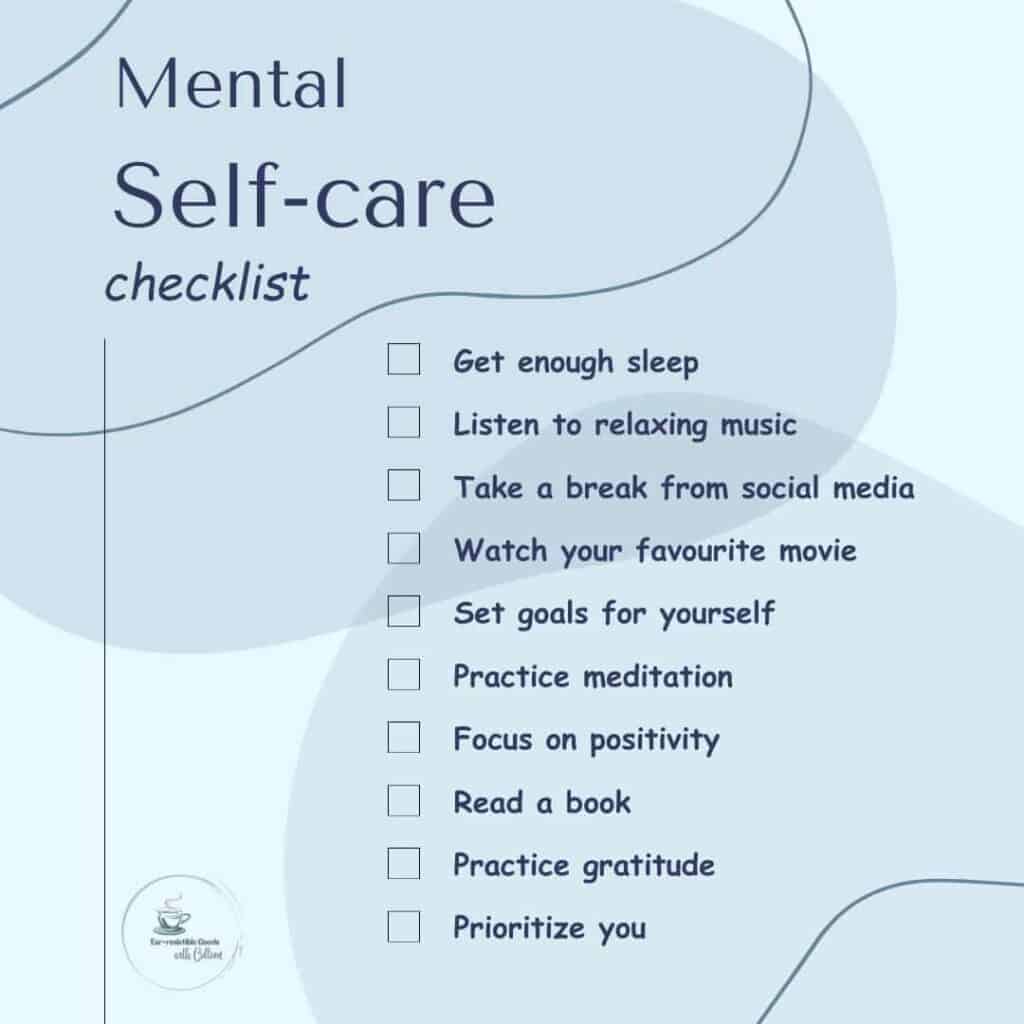
Mental self-care focuses on nurturing your cognitive and psychological well-being. It includes practices that promote your mental clarity, mindfulness and emotional intelligence. This can include:
- Mindfulness and Meditation – Engaging in relaxation, meditation and breathing techniques can support your mental self-care to enhance your focus, clarity and manage your inner peace and challenge any of your negative thoughts.
- Cognitive Stimulation – Activities that challenge and stimulate your mind such as reading, puzzles, learning new skills or engaging in creative channels.
- Stress Management – Creating strategies to effectively cope with stress such as deep breathing exercises, muscle relaxation with eyes closed, listening to music and engaging in any activity that helps with relaxation.
- Therapeutic Support – Seeking professional assistance or therapy when needed to address your mental health concerns and emotions.
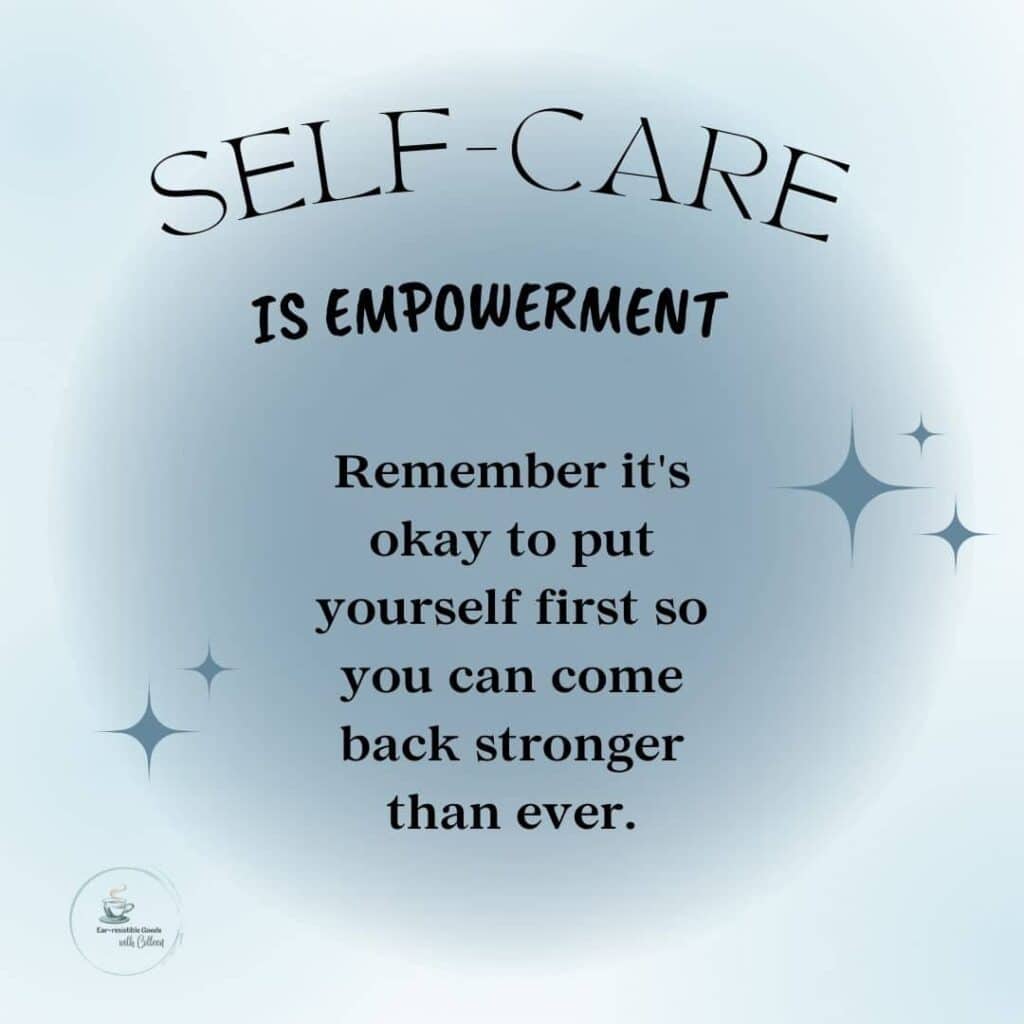
Mental self-care is highly personalized, as we all have personal levels of cognitive strengths, weaknesses, and preferences. Set realistic goals for yourself and if you nurture your mental well-being, you can develop healthy coping strategies and emotional stability.
If you prioritize your mental self-care it will enhance your sense of fulfillment in life and improve your overall emotional stability.
Spiritual Self-Care is one of the 7 Pillars of Self-Care

Spiritual self-care involves nurturing your innermost self, your values, your beliefs, and finding your meaning and purpose in life. It’s about your connection with your beliefs that promote your spiritual growth. This can include
- Prayer and Meditation – Engaging in practices that are your connection with a higher power, inner wisdom, or spiritual guidance. This can be through your religious practices, meditation, yoga or self-expression such as acts of kindness and compassion.
- Nature Connection – Spending time in nature in the outdoors and appreciating its beauty is so good for your soul.
- Mindfulness and Reflection – Creating a sense of presence, reflection, exploration and seeking meaning and purpose to your life.
- Participation in Community – Partake in religious or spiritual communities, rituals, or practices that gives you a sense of belonging and connection.
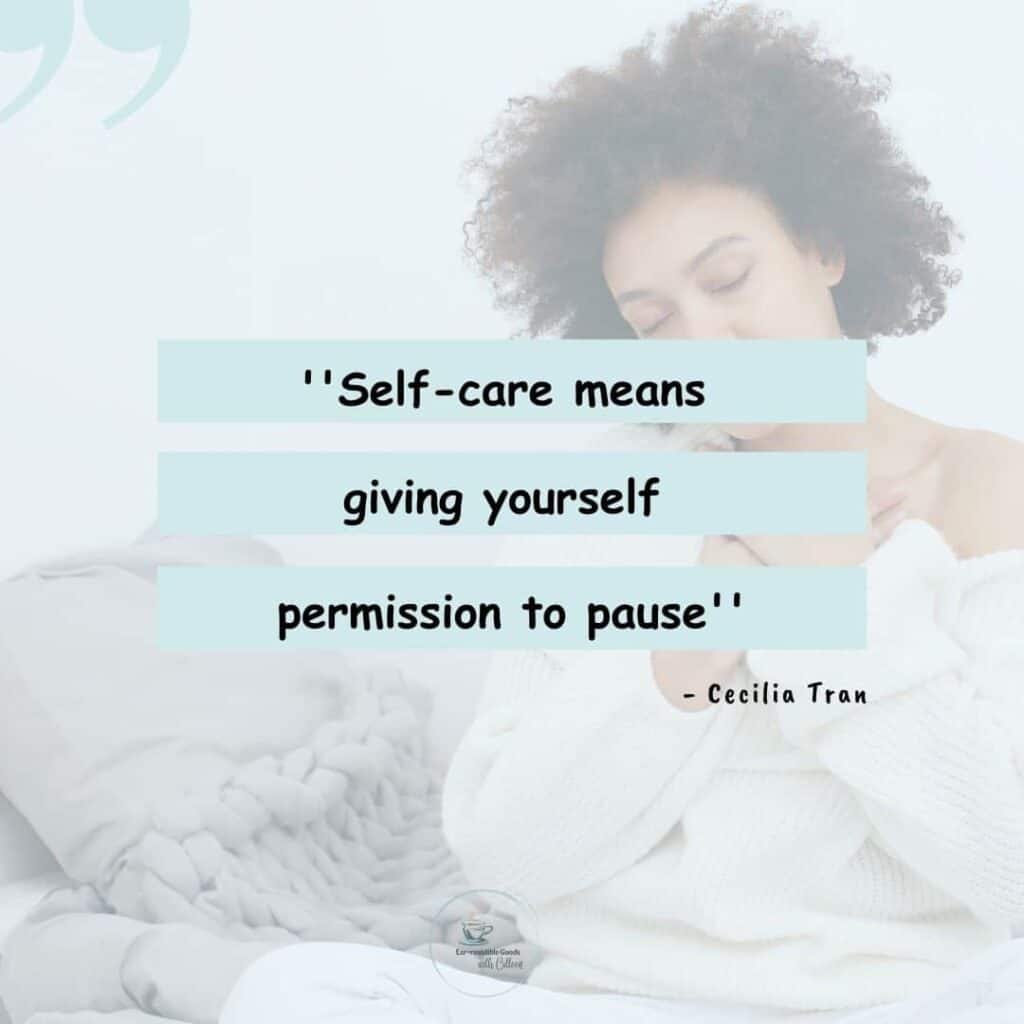
Spiritual self-care is deeply personal depending on your beliefs, values, and cultural background. By embracing your spiritual well-being, you can find deeper meaning, purpose, and gratitude to enhance your daily life.
Social Self-Care is one of the 7 Pillars of Self-Care
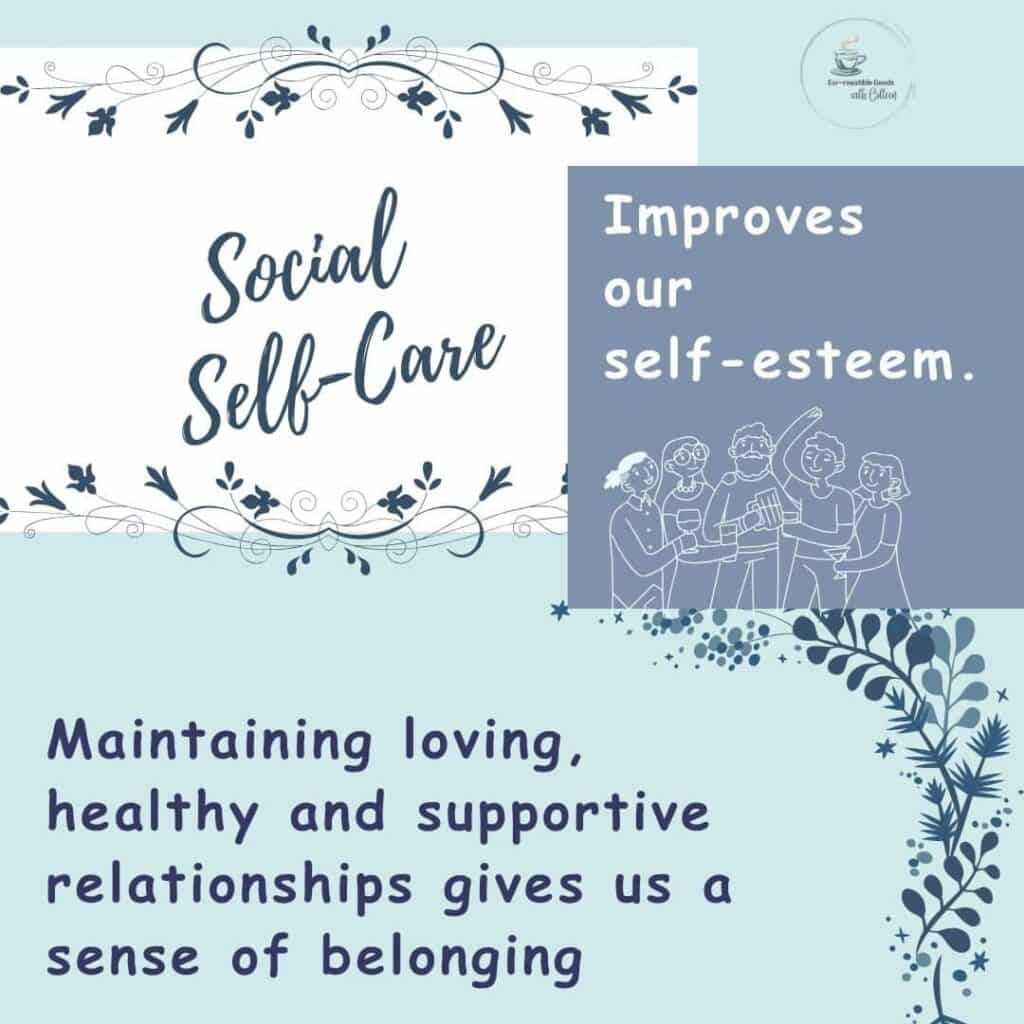
Social self-care involves nurturing your relationships and your connection with others. It includes practices that promote your social network, your acceptance, and personal fulfillment. This can include:
- Building Relationships – Investing time and effort to establish meaningful connections with your friends, family, and loved ones by enjoying a walk, game night, date night or sending cards to family and friends.
- Setting Boundaries – Create healthy boundaries in your relationships to protect your emotional well-being and maintain healthy parameters that suit your needs.
- Social Engagement – Participating in social groups or clubs, events, volunteering or any gathering that brings you joy, encouragement and positive connections.
- Seeking Support – Reaching out to friends, family, or support groups when in need of emotional support or guidance.
Social self-care is vital for your emotional well-being and helps you to avoid the feelings of isolation and loneliness. By nurturing meaningful connections and relationships, you can experience greater happiness and fulfillment in life.
Professional Self-Care is one of the 7 Pillars of Self-Care
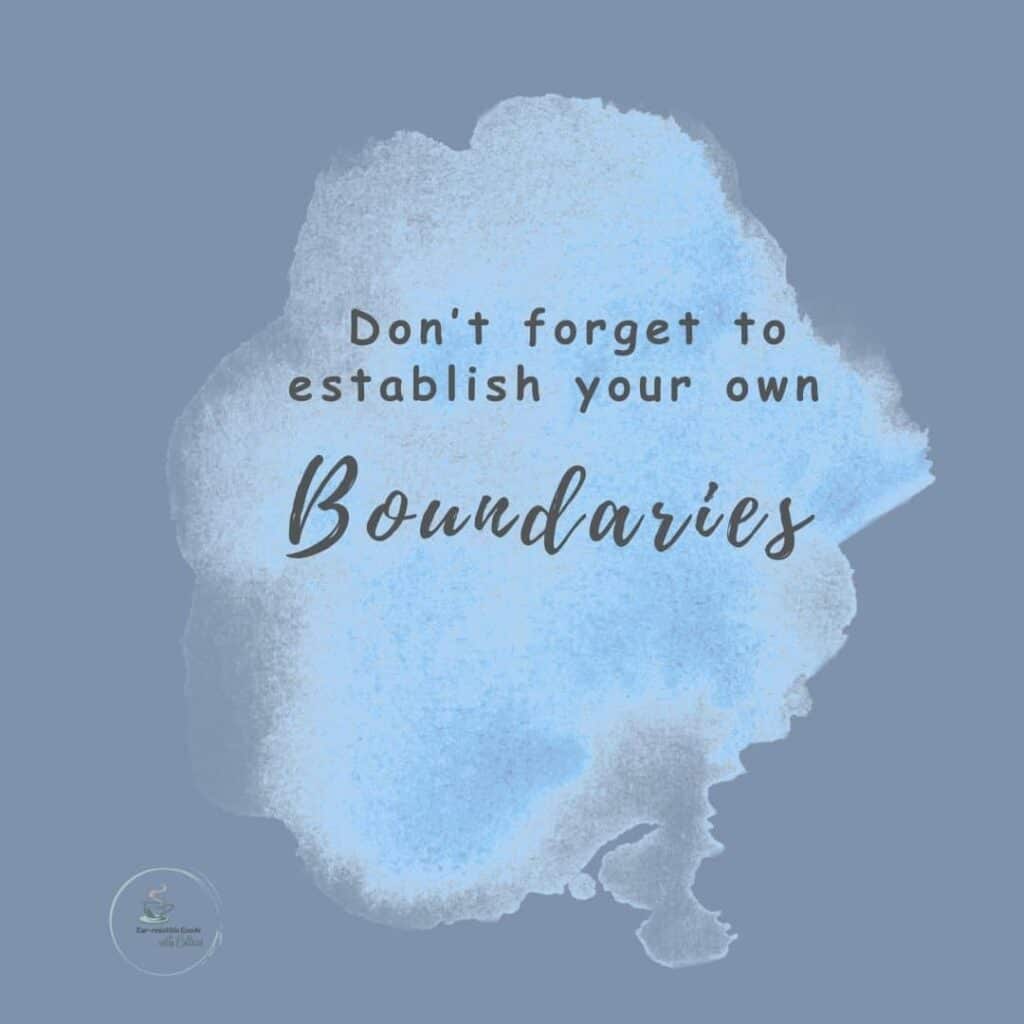
Professional self-care involves nurturing your well-being with your work or career. It promotes practices that include work-life balance, career satisfaction, and professional growth. This can include:
- Setting Boundaries – Establishing precise and clear boundaries between your work and personal life is essential to prevent burnout and maintain your overall well-being. Ensure to address your work-related stressors and provide a positive work environment for yourself.
- Skill Development – Embrace opportunities for ongoing learning and skill development to enhance your career, job satisfaction, and personal growth.
- Seeking Support – Seeking mentorship, coaching, or professional development opportunities to navigate your career challenges, setting goals, and advancing in your career.
- Self-Advocacy – You are your own biggest advocate in your workplace. Setting realistic goals, taking your lunch break, setting your expectations and communicating respectively so that you meet your workplace needs and priorities.
Professional self-care is essential to maintain overall balance and satisfaction in your career. By prioritizing your work-life, skill set, tasks and managing your time effectively, you can thrive professionally and nurture your personal well-being.
Professional self-care can avoid burnout, improve your job satisfaction and ensure you of a successful long-term career.
Practical Self-Care is one of the 7 Pillars of Self-Care
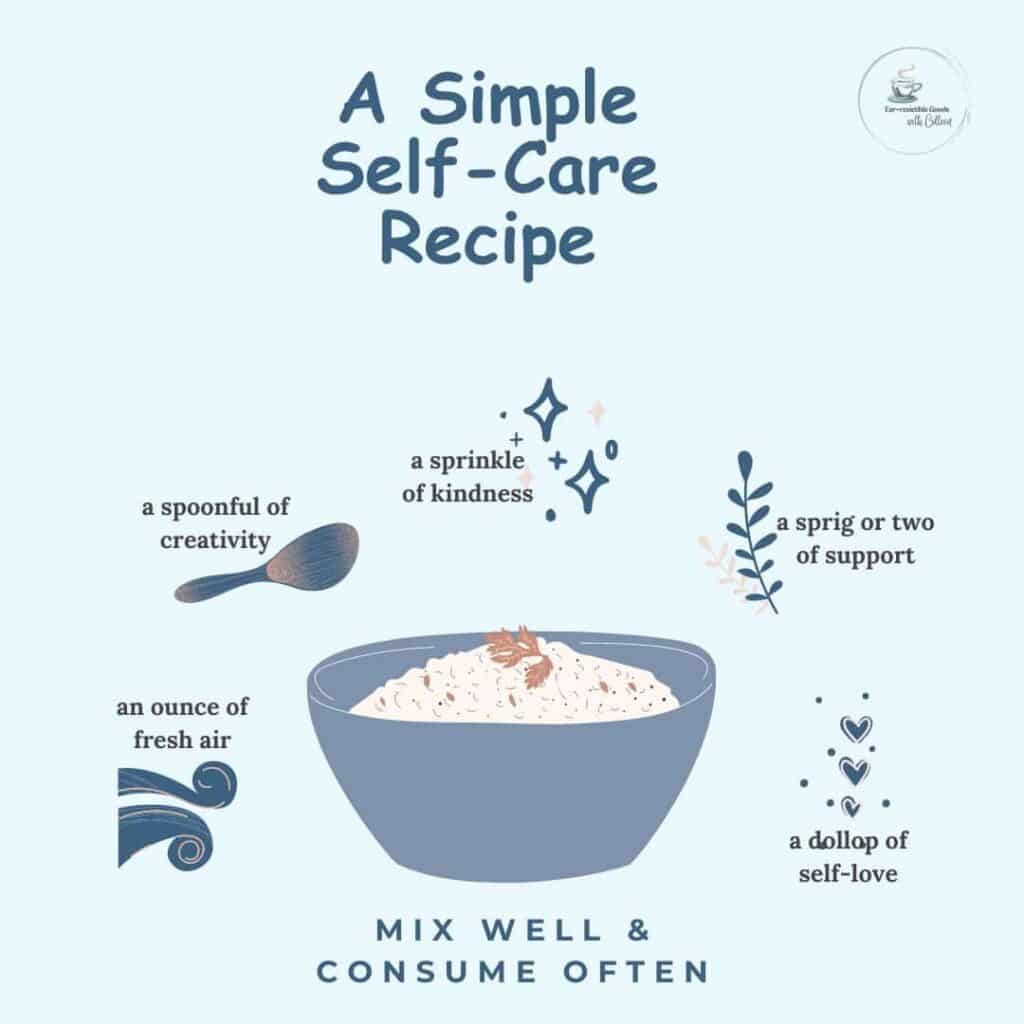
Practical self-care involves attending to your basics needs and responsibilities of life to maintain your overall well-being. This includes practices that include organization, efficiency, and stress reduction. This can include:
- Financial Management – Budgeting, saving, and managing your finances responsibly to reduce your financial stress will benefit your financial security.
- Time Management – Prioritizing your tasks, setting goals, and managing your time effectively will reduce your overwhelm and increase your productivity allowing you to be aware of your amount of ‘me’ time.
- Home Environment – Having a clean, organized, and comfortable living space will promote relaxation, productivity, and happiness. You could plan meals, organize outfits for the week, plan household chores and limit screen time are excellent examples of improving your home environment.
- Leisure and Recreation – Engaging in activities that include relaxation, socialization, enjoying hobbies, leisure activities and vacations.
Practical self-care is essential for reducing your stress, increasing efficiency, and promoting overall well-being in your daily life. It’s about ensuring you have the resources and support required to navigate all of life’s challenges effectively and efficiently.
By attending to practical needs and responsibilities, you can create a supportive, stable environment that will provide control, health, happiness, and fulfillment in your life.
Summary of the 7 Pillars of Self-Care
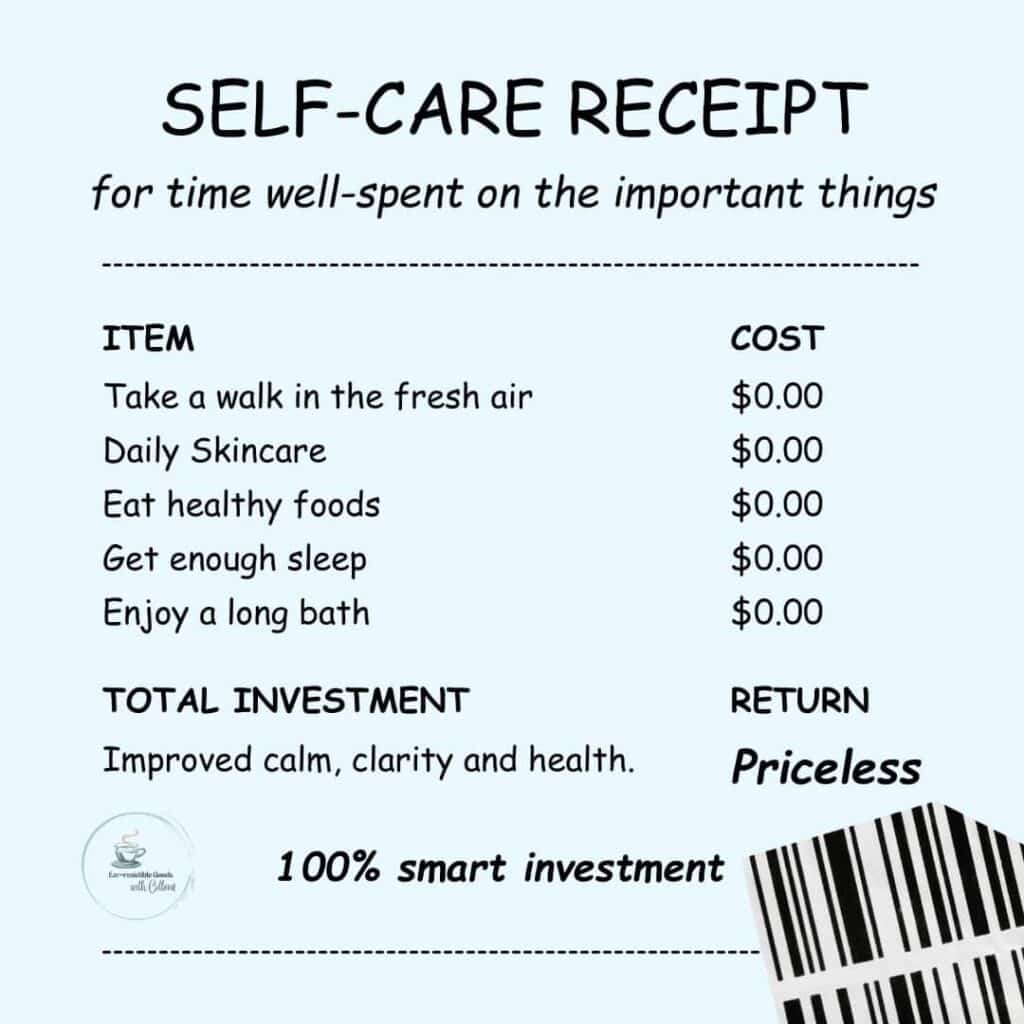
Prioritizing your self-care in these seven key categories is not selfish! Remember, it’s an investment in your health and happiness so that you show up as the best version of YOU in every aspect of your life. By nurturing your emotional, physical, mental, spiritual, social, professional, and practical needs, you can create a greater sense of balance and fulfillment, leading to a more meaningful life.
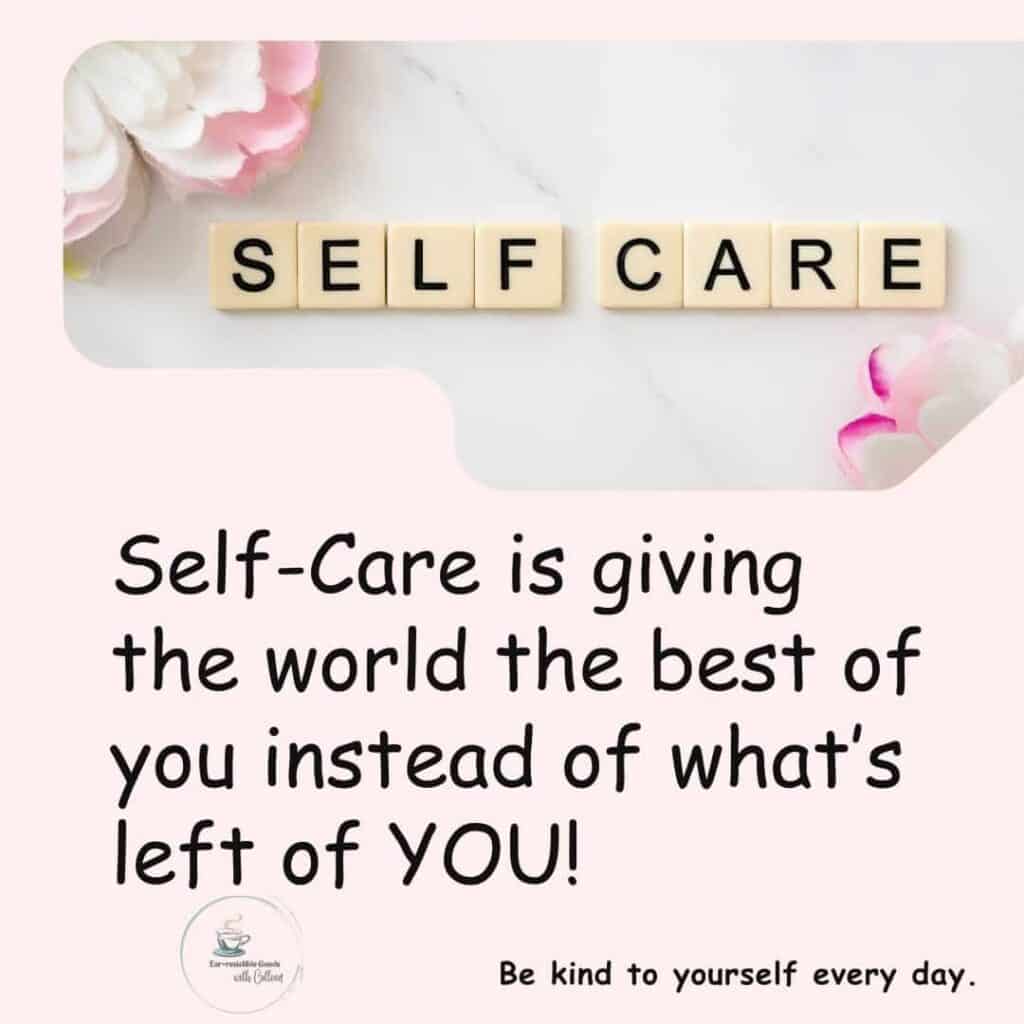
If you don’t prioritize your self-care, you could end up giving what’s left of you, not the best of YOU to the important people in your life.
You deserve to put you first and foremost so that you can contribute positively to all aspects of your life and for those around you. Life’s demands can get in the way but you need to nurture your body, mind and soul. Pamper yourself and dedicate time to your self-care daily.
Self-care is an investment in you so you can strengthen your self-worth and confidence. Self-care is a powerful reminder to reconnect with your authentic self. Focus your self-care needs on what truly brings your happiness and fulfillment.
I’d love to stay in touch with you! Please do me the privilege to serve you and provide you with more value by joining my email list and receiving my gift to you. Thank you!
At, Think Goodness, our Vision Statement is to be a ‘GLOBAL FORCE FOR GOOD’. We want to deliver random acts of goodness that bring joy and happiness to people. Every order equals a random Act of Goodness!
My motto is “Never dull your Sparkle! Spread light, love and kindness! Remember, Goodness is Love in Action!”


